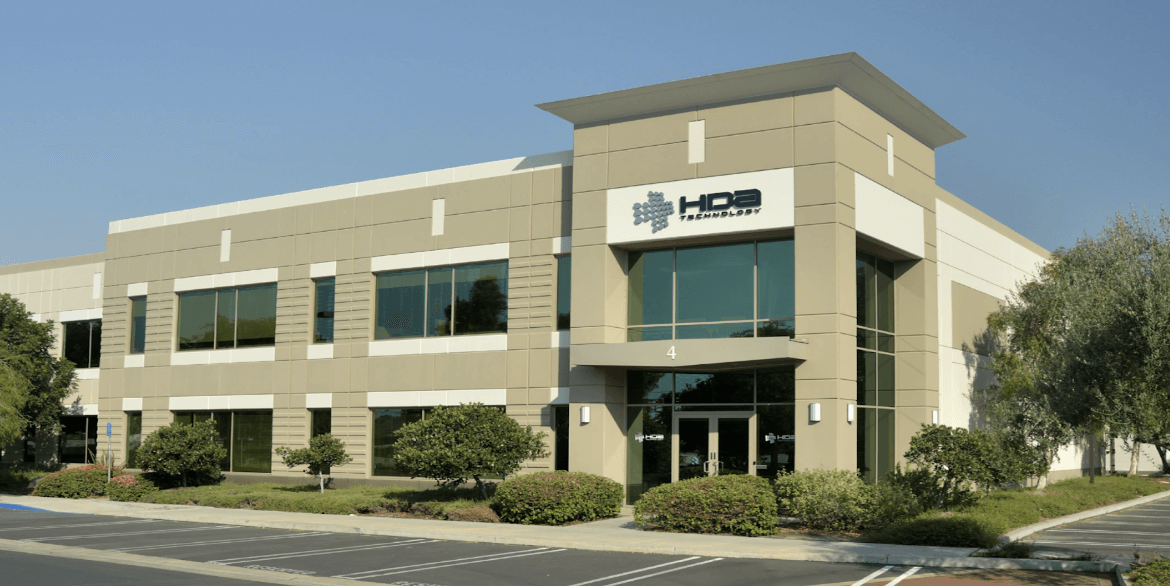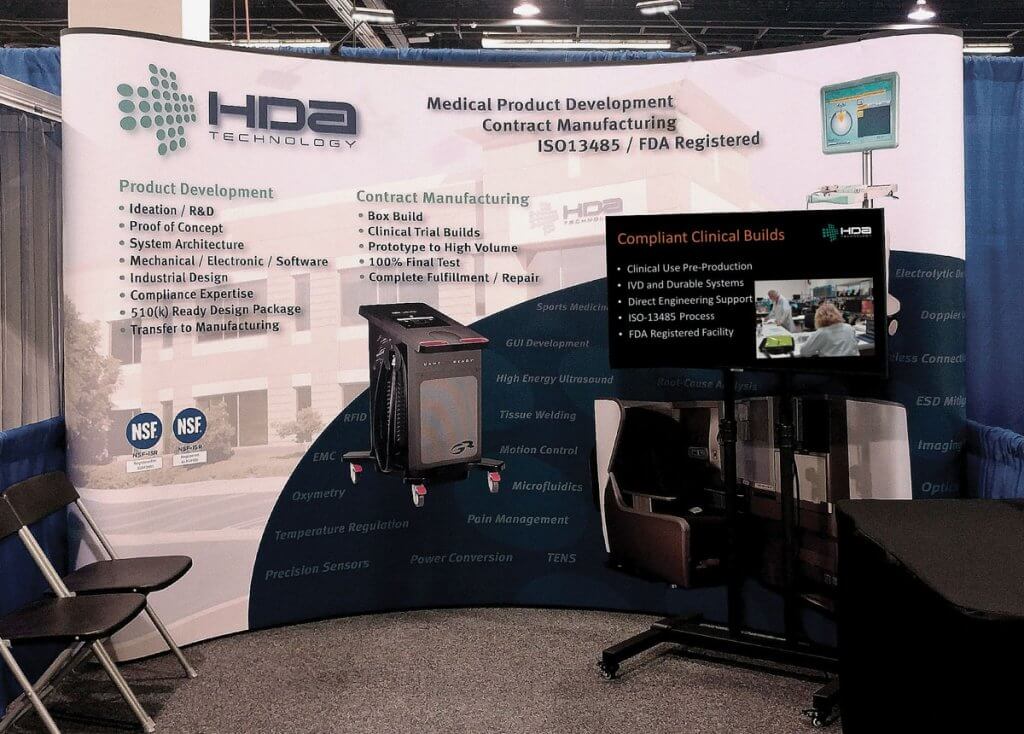Streamlining Medical Device Production: Lean Manufacturing Principles
Excellence in product does not have to mean excess in production; the right manufacturing philosophy will address need, maintain sustainability, and deliver quality – all while streamlining medical device production. The ability to nimbly navigate new research and arising needs without falling into the trap of overproduction can set a California medical device contract manufacturer apart.
Lean manufacturing principles are one key way of minimizing waste while maximizing quality in medical device production. We’ve built this article as an exploration of lean manufacturing principles, and an introduction to how HDA Technology implements them in our process.
What is Lean Manufacturing?
Lean is a production ideology that originated pre-World War 2 in the sphere of motor manufacturing. Lean manufacturing ideology is oriented around the goal of maximizing productivity while simultaneously minimizing waste within a manufacturing operation. Put succinctly, lean means “a way to do more with less”. The core principle of lean is that eliminating waste is a means of continuous improvement.
Waste: The Enemy of Lean
Waste, otherwise called muda in lean ideology, is defined as anything that does not generate value for the customer. Value, in turn, is defined by the customer: in lean ideology, value is defined as anything the customer believes they need, and is consequently willing to pay for. As a result, waste becomes anything that requires resources for which the customer is unwilling to pay.
Examples of waste according to lean ideology include overproduction, wait times between steps in production, unnecessary transportation time, overprocessing, excess inventory, product defects, and underutilized talent. The primary aim of a lean approach to manufacturing is the reduction of waste.
The Goals and Benefits of Lean Manufacturing
Lean ideology aims to generate sustainability in production processes and create high-quality products and services. A contract manufacturer that has implemented lean principles effectively can eliminate waste, improve product quality, reduce costs, and reduce overall lead time.
A Lean Approach to Medical Devices
Lean principles, applied to medical device development and manufacturing, can positively impact medical device production by reducing time to market and improving quality. Together, these outcomes also serve to improve profitability – something every manufacturer wants.
At HDA Technology, we understand that medical device design and manufacturing, by its nature, necessitates quality elements such as proven design, proper component and vendor selection, competent and appropriate manufacturing and test processes, and a very high level of quality. Like in the case of ISO certification, the adoption of lean principles embeds a quality improvement methodology into our process that enables a streamlined realization of these elements.
Reducing Time to Market
In the world of medical device production, the need you are aiming to meet can be urgent. Time to market may be uniquely important to medical device development and manufacturing in the case of novel devices used for potentially life-saving procedures. Case studies show that integration of lean principles into manufacturing processes can significantly reduce time to market for medical device production – without sacrificing the quality or reliability of the product.
Achieving a High Level of Quality
We know from experience that medical device development and manufacturing requires a high level of quality control. It also needs a corresponding process that meticulously documents that quality control. Inherent to the implementation of lean principles is meticulously documented quality improvement and control – we’ll talk more about this soon.
At HDA Technology, we leverage lean manufacturing principles to ensure that our products are highly effective, meet product and regulatory requirements, and are manufactured with tight turnaround.
5 Core Principles of Lean Manufacturing
Lean manufacturing ideology can be defined through 5 core principles:
Value
Value under lean theory is determined by the customer’s need and/or circumstance. It depends on how much and for what the customer is willing to pay.
At HDA Technology, we strive to meet our clients’ needs. Part of HDA’s role as a medical device manufacturer operating in the medium to low-volume space is working with our clients to develop products that actively meet their customer’s needs. Our ability to operate efficiently and our willingness to listen helps HDA Technology deliver good value to our clients in more ways than one.
Value Mapping
In lean lingo, an ongoing priority is understanding the life cycle of your product. Value mapping is a lean principle referring to the analysis of production with a triple aim: 1) identifying waste 2) reducing it in the moment, and 3) problem-solving for improvement in the future. The work streams that make up a product lifecycle are often complex, so to effectively value map, you need to include nonlinear processes and multi-disciplinary employee perspectives and expertise in your map.
At HDA Technology, we conduct value mapping during purchasing, production and assembly, and test and service. This state of constant, positive scrutiny helps us improve the total cost of goods, reduce the risk of negative impact on yields and quality, and improve the timing and repeatability of production cycles.
Flow
Tired of constant interruptions to medical device production? In lean manufacturing, flow means ensuring a process is continuously worked on without interruptions of fragmentation until fully complete. To achieve flow, a contract manufacturer can remove barriers to the process – for example, removing the use of batching and queuing, where each step entails waiting and fragmenting of the process.
HDA implements the principle of flow in how we structure our production: on a per-product basis, our total product production costs are broken down into fine increments, are well understood, and are frequently analyzed to capture improvements in cost, yield, or final quality.
Pull
A company uses a pull approach when they perform work and manufacture a product according to consumer demand. In contrast, a push approach is when a company manufactures a product even when there is no demand.
When implementing a workstream, a push approach can result in manufacturing steps being performed out of order. On the other hand, embedding the lean principle of pull within a company ensures that the next step in a given workstream is only performed when it is needed, or when the system is ready for it. This helps to streamline the manufacturing process and reduce waste.
At HDA Technology, we use the pull principle in 100% of our production. We keep in close contact with our customers, review their current and future forecasts for production orders, and synchronize our raw material orders and production planning with their desired ship dates. Using a pull allows us to meticulously plan our workstream to balance your need for materials with unstable delivery forecasts against elements of the production plan with a short lead time.
Perfection
The principle of perfection represents a key tenet of lean: no matter how many times a process is improved, it can be further enhanced.
To implement this principle, manufacturers can use quality improvement cycles like plan-do-study-act, or PDSA, in their process. Perfection methods like PDSA are a scientific approach to evaluating, recommending, and then evaluating whether that recommendation has the desired impact – namely, reducing waste and improving quality. Any desired improvements are then integrated into the system and the cycle is renewed.
Naturally, HDA’s goal is perfection, and we take deliberate steps to achieve this goal. DA’s goal is perfection, and we take deliberate steps to realize this goal. HDA Technology is both an ISO and FDA-registered company – evidence that we take our quality and production efficiency seriously. Guided by the principle of perfection, we evaluate our processes regularly and systematically to achieve outstanding quality and optimization of process.
Strategies for Implementing Lean Manufacturing Principles
To integrate lean methods into their process effectively, medical device manufacturers must account for the complexity of their production system. This means thinking about the behaviors and needs of active agents in the system, like employees, clients, or other stakeholders.
Different strategies exist for practically implementing lean manufacturing principles into your company’s process while also considering system complexity. Two key example strategies include 5S Implementation and the Kaizen Program.
5S Implementation
5S Implementation is a 5-step process for practically implementing lean principles into your production system. 5S stands for:
Sorting
Get rid of items in a process that you don’t need. To sort is to declutter your workstream. For example, you may be ordering materials for a feature in your medical device that does not actually address a consumer need; removing this will reduce waste and result in a more focused product.
Setting in Order
Provide the tools, materials, or space needed to do the work. Medical device production can involve a lot of precision and the use of potentially delicate tools and materials; the more organized the space, the more effective and efficient the work.
Shining
To shine is to refine. An advanced form of decluttering, this step makes sure that you have fine-tuned your work stream and eliminated untested steps that could cause potential product defects or issues to emerge later on. This is especially important in the production of medical devices because product defects down the line could be the difference between life and death.
Standardizing
It’s time to standardize your newly-refined best practices. By standardizing, you are giving different agents in your workstream the shared responsibility of maintaining the new process. Medical devices must be reliable, high quality, and consistent – the standardization of best practices ensures this.
Sustaining
This is the maintenance phase. You have set your workstream, and the agents within it, up for success. Moving forward, your team can provide and review peer-to-peer and internal feedback regularly; because of your hard work early on, acting on the feedback should be simpler and painless. This regular and sustained feedback process ensures consistent quality in medical device production.
The Kaizen Program
Making big changes to your process without collaborating and communicating with employees can be counterproductive. One way of preparing for this is training employees in lean principles and promoting a lean culture throughout the company system. Alongside 5S, contract manufacturers can use the Kaizen Program to engage stakeholders in the improvement of their production system.
Kaizen is one strategy for implementing lean principles while taking into account employee/human feedback in the process. Kaizen is essentially a form of formalized PDSA cycle – the process we discussed under the principle of perfection – but focused on feedback from a contract manufacturer’s employees. Using Kaizen can reinforce the lean principle of perfection in all aspects of your medical device production.
Where is HDA Technology in its Lean Journey?
As a medical device contract manufacturer in California with a commitment to both high- and low-volume production, HDA Technology strives to embed quality improvement methodology into every aspect of our work. Lean principles are both systematically and organically part of all projects we work on with you.
HDA is advanced in its implementation of lean principles and has been on its lean journey for years. We are currently focusing on refining approaches to manufacturing that pair well with lean ideology. A good example of this is design for manufacturability – the testing, packaging, and service that takes place during the design phase early in medical device development.
Another good example is our focus on reliable procurement: we want to have second and third sources for all materials, to be sure that materials are made properly and have a known pedigree, and to know that materials arrive when expected.
Medical device manufacturing relies on reliability, precision, and a commitment to quality improvement. HDA’s lean approach to manufacturing brings all of this to the table and more.
If you have any additional questions about HDA’s manufacturing and production approach, you are invited to get in touch.








